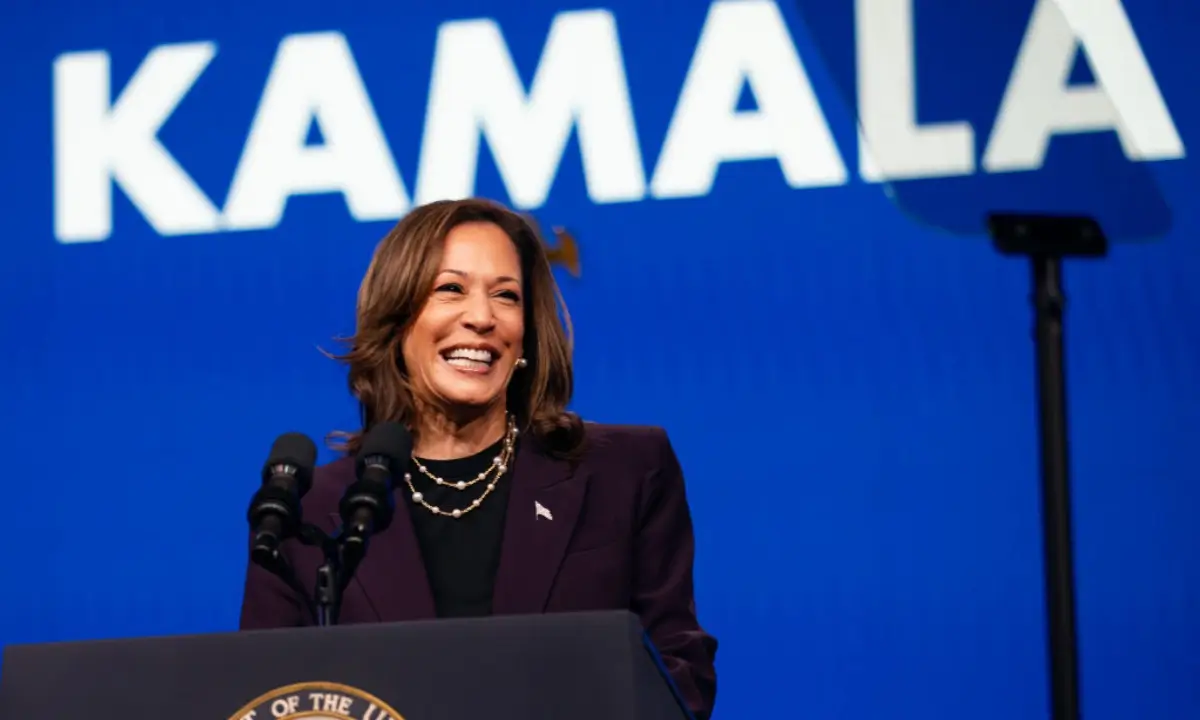‘That’s the Best You Can Find?’: Supporters Race Kamala Harris’ Defense After Conservative Publication Targets Her with Plagiarism Accusations Two Weeks Before Election
Running against a candidate known for shading the truth, if not flattening it with a steamroller, Vice President Kamala Harris has positioned herself as someone who can be trusted.
But a second round of accusations that she plagiarized someone else’s words without attribution could damage that credibility, providing, at the very least, an unwanted distraction as the campaign enters its final two weeks.
The Washington Free Beacon reported Tuesday that, in written congressional testimony from 2007 supporting legislation creating a student loan repayment program for state and local prosecutors, Harris copied almost verbatim writings from a Republican in favor of the bill.
“Both statements cite the same surveys, use the same language, and make the same points in the same order, with a paragraph added here or there,” The Free Beacon found. “They even contain the same typos, such as missing punctuation or mistaken plurals. One error — a “who” that should have been a “whom” — was corrected by Harris, San Francisco’s district attorney at the time.
Of the roughly 1,500 words Harris offered in support of the John R. Justice Act, nearly 1,200 of them were lifted verbatim from a statement submitted two months earlier by Illinois prosecutor Paul Logli, the Free Beacon reports. They both argued that the bill, which didn’t make it out of Congress, would help district attorneys’ offices recruit and retain top legal talent.
This comes just one week after conservative activist Christopher Rufo accused Harris of copying more than a dozen sections of her 2009 book, “Smart on Crime,” from uncited sources. The book, co-authored by Joan O’C Hamilton, served as a springboard for her successful 2010 campaign to be California’s attorney general.
On Tuesday, The Washington Free Beacon also revealed that, as California’s attorney general, Harris didn’t merely borrow standard legal language without attribution. In one example, the report states that she included a fictionalized story about a sex trafficking victim—created for illustrative purposes by a nonprofit—and presented it as a real case.
The original story was posted by the Polaris Project, a nonprofit running the National Human Trafficking Hotline, which made it clear that these vignettes were meant solely for information, with key details altered to protect identities. Yet in November 2012, Harris published a report where she used one of those vignettes almost verbatim, but with a crucial change: instead of Washington, D.C., where the story was set, Harris relocated the rescue to San Francisco.
Though initially dismissive of the allegations made by Rufo, plagiarism expert Jonathan Bailey told The New York Times the charges were “more serious” than initially appeared.
Plagiarism scandals have, in the past, derailed political campaigns, most notably the first presidential run by Joe Biden. Considered a strong contender for the Democratic nomination in 1988, a video from a speech by the then-senator from Delaware was shown opposite one given years earlier by U.K. Labour Party leader Neil Kinnock. Biden had clearly copied Kinnock’s words without attribution, and one week after the video went public, he withdrew from the race.
So far, the allegations against Harris haven’t gained much traction — Republican nominee Donald Trump has barely mentioned it. Voters, it seems, have deeper concerns.
“I’d rather have a Dept of Education, teachers who are certified, FDIC insurance on our bank deposits, reproductive healthcare without fear of my future DIL’s arrest or death, access to birth control for my son because ALL OF THAT IS GOING AWAY and much more- if Trump takes office,” commented one Harris supporter.
Another noted that, while unfortunate, Harris’ accused copying act pales in comparison to her opponent, who, according to The Washington Post, delivered some 30,573 falsehoods or misleading statements during his first term.
“That’s the best they can find?” a user added.
Philadelphia Attorney Max Kennerly argued that the testimony was not “in any sense, ‘plagiarism.’”
“The National District Attorneys Association had a position on something, and two board members appropriately gave that same position in Congressional testimony two months apart,” Kennerly said.
Harris has yet to comment on the 2007 congressional testimony. Her campaign did address the allegations about plagiarism in her book, saying they were much ado about nothing.
“Rightwing operatives are getting desperate as they see the bipartisan coalition of support Vice President Harris is building to win this election, as Trump retreats to a conservative echo chamber refusing to face questions about his lies,” a campaign spokesman, James Singer, told media outlets last week. “This is a book that’s been out for 15 years, and the Vice President clearly cited sources and statistics in footnotes and endnotes throughout.”
The man behind the statements she allegedly cribbed for her congressional testimony said it’s likely Harris’ staff bears much of the responsibility.
“I don’t think it’s an act of plagiarism as much as it was a case of relying on stuff people who helped write the statement cut and paste,” Logli said. “They probably cut corners because they were overstretched.”

